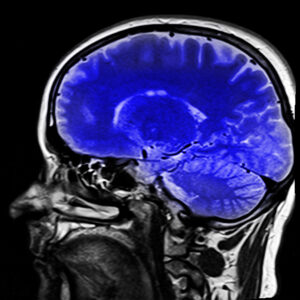 Xanax and Prozac
Xanax and Prozac
You’ve heard of Xanax. And Prozac. How about Adderall for ADHD and the sleeping pill Ambien. Or Zoloft, Klonopin, and trazadone. This is neuroscience. These drugs are neuroscience medicines. We still get questions asking, “What is neuroscience?” Neuroscience is your brain, a healthy brain, a sick brain, and drugs that make a sick brain well again. (Most recent site update on July 26, 2024.)
We All Enjoy Brain-active (Psychoactive) Beverages and Smokes
Tea, coffee, wine, whiskey, beer. Totally your choice. Or smokables, cigarettes and marijuana. Each contains brain active molecules, specially-shaped that fit into receptors in our brain, like baseballs sliding into a catcher’s mitt. The psychoactive agents are caffeine in coffee and theophylline in tea. Beer, wine, and whiskey contain ethanol, that is, ethyl alcohol. There’s nicotine in cigarettes and THC in marijuana. You put these beverages and smokes into your body and they travel in your bloodstream to your brain. There they find their nerve cell receptors into which they fit. And boom, like magic, it feels good.

Welcome
Welcome to the Neuroscience Research and Development Consultancy website. If you would like more information about any of the topics we cover on our site, or if you have a question. a comment, or a critique, please send it to us at: Comment@NeuroSciRandD.com

• schizophrenia
• Alzheimer’s disease
• autism
• PTSD
• Parkinson’s disease
• bipolar disorder
• epilepsy
• stroke
• depression
• panic disorder
• multiple sclerosis
• migraine
• ADHD
New or Updated pages as of July 26, 2024:
• When Clozapine Doesn’t Work – Quick Look (FREE PAGE)
• British Columbia’s Mental Health Care – Free Page (FREE PAGE)
• Doctors’ Poems (FREE PAGE)
• Predicting Your Risk for Dementia (subscriber-only page)
• Early Psychosis Intervention To Prevent Schizophrenia (subscriber-only page)
• When Even Clozapine Doesn’t Work in Schizophrenia (subscriber-only page)
There’s Good News About the Medical Conditions We Discuss
- We’re nearing the point of being able to prevent schizophrenia.
- There’s continuing progress in delaying or maybe even preventing Alzheimer’s.
- Fewer depressions are treatment-resistant with the new medications available.
- Advances have made treating multiple sclerosis more successful more often.
- With stroke awareness campaigns, mobile stroke units, and active rehabilitation centers, more strokes are treated quickly and permanent disability is avoided.
What “Bad Behavior, Bad Brain” Means
Practicing neurologists have a “rule of thumb”. Bad behavior, bad brain. Now, a rule of thumb is defined as a useful principle that applies in most situations most if the time, but it’s not meant to be strictly accurate or reliable in every situation. Bad behavior, bad brain means that if someone is behaving badly, as a starting point a physician should look at their brain, because often that’s where the problem is. We’d like to say good behavior, good brain, but that’s not true. Sadly, there are many people with perfectly good brains that are awful criminals.
We Continue Helping by Providing Good Information
We founded the Neuroscience Research & Development Consultancy eight years ago, in 2015. The consultancy provides answers to questions, trustworthy explanations, and discussions about the medical conditions we know best. We get emails from people explaining what’s going on with them and their physician, and asking if it makes sense. We write back. Sometimes what’s going on makes sense, sometimes not. It’s almost like a personal medical second opinion.
Free Newsletter to Everyone Upon Request
Sign up today! Sign up for our free monthly newsletter. Every month it has articles about recent developments and new treatments. There should be a dialog box at the bottom of your screen to sign up with your email address.
Become a Subscriber to Help Support Our Work
Most of our site is free though there are some pages only available to our subscribers. In truth, most people who subscribe do so just to support our work. You can sign up online and, if you want, it’s easy to cancel online. So, hey, join the “club” with a low-cost subscription (99¢ a month or $1.99 for three months).

Interesting Stories and Discussions
For example, don’t miss the true story of the Lady with Worms Crawling Out of Her Skin.
A Bit More Introduction About These Brain-Based Medical Conditions

Schizophrenia
We explain schizophrenia, what causes it, what it is, and early signs that it might be starting. We go into describing later symptoms as it continues and worsens and discuss how long it lasts and whether a person can ever stop their medications. We provide descriptions of the “negative symptoms” of schizophrenia, different from the usual positive delusion and hallucination symptoms everyone knows about. And, schizophrenia is different in men and women. In addition, there’s a free page on treatments for schizophrenia.
Alzheimer’s
Alzheimer’s disease remains a medical mystery despite everyone feeling that we know a lot about it. We do know the early warning signs and the symptoms that are the main problems in Alzheimer’s. And that the brain changes start as many as twenty years before any symptoms, even the mildest symptoms, appear. It’s interesting to know that Alzheimer’s symptoms are different for women and men. And while medical science might be confused about what causes it, the science is more certain about ways to minimize the risk of getting it.
And here’s a link to a heartwarming but sad poem about dementia, “My Own Blood”. We think you’ll like it. It’s one of those that make you smile and cry at the same time.
Bipolar Disorder
Bipolar disorder is a strange one, the medical condition that used to be called manic depression. The mood state of mania proves one unusual point: yes, you really can feel too good. Bipolar disorder is treatable, with many, many effective medications that all have good safety records.
Panic Disorder
Panic disorder, while frightening when it first appears (damnation, you feel like it might literally scare you to death!), it’s not fatal and it really is readily treatable. Those panic attacks (really the worst super-bad anxiety attacks) can be quieted. What works fastest and best is a combination of medication and therapy or medication and just education. And getting it treated should be no problem. It’s a well understood medical condition. There are many good treatments, many medications, and many highly effective therapies. You can learn to calm the panic attacks and not let them worry you.

Depression
When we talk about depression, we mean the real medical disorder, a serious clinical medical depression. It’s a whole different mental state than what we might call the “Sunday afternoon blues”. The good news is that serious depression, even long-standing, treatment-resistant depression, can be treated much more easily and readily these days. We have new tools, better than in the past. But understand that while the medications we have for depression do work, but not all medications for depression work for all depressed people. Some trial and error is needed initially but eventually almost everyone succeeds at getting better.
ADHD
Attention Deficit Hyperactivity Disorder. It starts in childhood. But it often doesn’t stop after childhood or adolescence, lingering on into adult years for most people. A recent finding is that it can vary in severity from time to time, less noticeable at some times but then more severe at other times. Also, as the years go by, it can interfere with life much less during some intervals but then be more of a problem at other times. The good news is that, if diagnosed and treated correctly, it can provide a person with a great many benefits and skills. We describe the several recommended medications and valuable therapies.
Epilepsy
Epilepsy, this it, a seizure disorder, is really common. Everyone knows about epilepsy. Physicians know how to treat epilepsy. Though, of course, a specially-trained and experienced neurologist, an epileptologist, is the best in this area. And, it usually responds well to one of the many available effective medical treatments.
Parkinson’s Disease
A huge amount of Parkinson’s disease research has been done and continues. Now there are new and better medications and formulations, and more on the way. Gracious and conscientious famous people have helped to educate the public and have generously funded a lot of new research.

Migraine
If you have migraines you’re lucky to be alive at his particular time in medical history. We’ve seen a revolution in migraine treatment during the past several years. With our greatly increased understanding of migraines, we’ve found new designs for medications so that they work better and, in addition to treating headaches, we have better medications now to prevent headaches.
Ask Us a Question
Send us an email and we can reply by email. Our email address is: Comment@NeuroSciRandD.com
The human need is comfort. (See our Old World Cabbage Roll recipe.)
If You’re Puzzled by our Name, You’re Not Alone
Many readers are puzzled by our name. They write to us asking, “Why did you name yourself Neuroscience Research and Development Consultancy, or NeuroSci R&D Consultancy? It’s pretty obscure.” They often suggest better names, like, “Ask the Brain Doc”, or ” Answers to the Medical Questions You Never Thought to Ask”. The curiosity with our name is understandable. The company was started nine years ago under very different circumstances and there have been several changes along the way. Unfortunately for us, we’ve not been able to keep changing our company name every time it takes a change in direction. We’re stuck because there are legal and financial consequences of too frequent company name changes. But all of that explained, you can call us anything you like. Whatever you call us, we like hearing from you.
Helpful links:
ClinicalTrials.gov, National Institutes of Health, US Library of Medicine
NINDS, the National Institute of Neurological Disorders and Stroke
NIH, the National Institute of Mental Health
